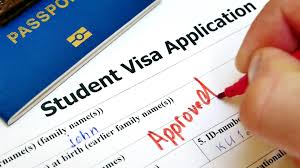When you apply for a study permit, there are two possible outcomes, it is either you are successful or your application is being rejected. There are many reasons for this, it’s not always because your submitted document is incorrect or that you didn’t submit everything. The rules and regulations for these applications are quite strict and confusing as well. So in this article, I will try to explain some of the reasons why your study permit application is being refused.
Reasons why your study permit application is being refused.
- The reason for which you have been refused the study permit depends largely upon what’s written on your eligibility document, which is usually your passport or birth certificate. For instance, if you have a passport issued by a country that does not comply with Canada’s Immigration and Refugee Protection Act, then you will receive a rejection letter.
- The other reason for which you are being rejected the study permit is the way in which you are applying for it. If you wish to study in Canada, you usually need to follow some guidelines and guidelines, especially when it comes to the admissions process.
- If you have not submitted the appropriate documents with your application, then you will also be rejected. Here, we are talking about the missing immigration documents such as things like proof of funds, proof that you can support yourself, or proof that you meet certain criteria such as language proficiency.
- If you have previously applied for a study permit and been denied, then you may face some more trouble in the future. It is a fact that a person can reapply for a study permit after a certain period of time. This usually depends on the reasons why your application was denied previously.
- If you are having trouble with responding to the questions on the online application, then you will also be denied your study permit without any doubt.
- If you are applying to enter Canada as a visitor, then again the rules and regulations are quite strict. You can’t apply if you have resided in Canada for less than 90 days in total. Furthermore, you cannot apply if you have violated any provisions of Canadian laws.
- If you are involved in any organization that conducts activity that is counter to Canadian laws, then your application will also be rejected.
- If you have been charged with a crime or are disqualified for any reason, it will most likely be rejected as well.
What Do I Do When My Visa Is Refused?
Here are some tips that you should follow after you have received a rejection letter.
- First of all, you should not be discouraged. There are many applicants who have been rejected several times before being finally approved for their study permit.
- You must submit your application immediately after you have received your rejection letter. If you feel there is a mistake somewhere, the person can appeal for reconsideration.
- If you have applied online, then you should not panic that your credit card has been charged. This is just authorization for an application, which means that it will be rejected nonetheless.
- In the letter of rejection, the immigration officer will state the reasons, work on the reasons and apply again
after that.
- You can also contact the officials directly through the phone by leaving a detailed message on their line.
- You should also send this information with your supporting documents to the address stated in the letter.
- If you want to change your visa category, then you can do that too. Here, you will need to apply for a new study permit and then apply for the new visa category.
- If you are still confused after reading this article, then you should refer to the site of Student Immigration for more information about applying for a study permit. You can also apply with them if you wish to try it out!
Requirements for Canadian Study permit
- Your health should be good enough to study in the specified institutions and the duration.
- You need to make sure that you do not have any criminal records. The Canadian authorities will thoroughly check international students’ backgrounds before giving them admission and issuing a study permit.
- You should have enough money to support yourself, pay for your tuition fee and for living expenses.
- You should study in an institution that is approved by the Canadian government.
- Your age should be between 18 to 35.
- You should be able to make it to your classes, take exams and complete assignments on time.
- You should have an immigration medical exam done.
- You should not have any communicable diseases

